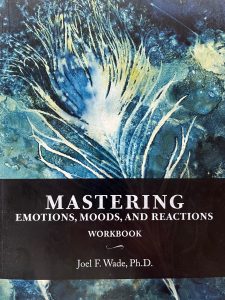It’s easy these days to get drawn into a variety of small boxes: computers, televisions, ipads, kindles, smart phones… or occasionally even an actual book. There are a lot of wonderful possibilities within each of these (particularly books, but I’m old fashioned), but they can also deprive us, if we’re not careful, of life’s greatest joys: the treasure of human connection.
Fortunately, it’s fairly easy to counter this tendency, and enjoy the benefits of a richer emotional life, and a healthier physical life, as a result. I’ll show you how shortly.
One of my favorite researchers is Barbara Fredrickson, of the University of North Carolina at Chapel Hill. One of her books is Love 2.0, in which she looks at “love from the body’s perspective.” She has been studying how the experience of the emotion of love affects your physiology, including your physical health.
Now, when we hear the word “love,” the first form that usually comes to mind is romantic love. But this is only one framework within which we feel the emotion of love. The emotion of love requires safety and trust, and a Long-term, committed love relationship can create the opportunity for feeling the emotion of love often – but it is not the only place. We love our children, we love other family members, we love our friends…
We even feel a kind of love in what Fredrickson calls “micro-moments of connection.” The nice conversation we have with the checkout person at the grocery store; the warm greeting of welcome by a new acquaintance at a meeting; even the moment of eye contact with a stranger who holds open a door. That wonderful warm feeling is something that is much more ubiquitous than we might expect.
It turns out that these micro moments of connection are actually filled with stuff that is good for us, emotionally, psychologically, and in terms of our overall health… like a good meal is filled with nutrients.
The more positive emotions we have, the better our “vagal tone” is. Our vagal tone is the strength and health of our vagus nerve, which connects our heart with our brain and our internal organs. Our vagus nerve, among other things, controls our heart rate variability.
Heart rate variability is the natural ebb and flow of our heart rhythm that occurs with each breath. Our heart speeds up just a little bit on each inhale, and slows just a bit on each exhale – or at least it’s best if it does this. Healthy heart rate variability is one sign of better health, particularly in the form of better heart and glucose regulation, and better regulation of emotions and attention.
These micro-moments of connection improve our heart rate variability. They can also bring a great deal of joy to our daily life… if we’re looking for them. If we’re thinking of love as only the romantic kind, we can miss the warmth and joy of connection all around us.
Eye contact is one of the ingredients to making the most of these moments. We take in so much information visually, and those moments of seeing each other are filled with potentially good, warm feelings, and better understanding.
“Now wait a minute, you’re throwing this word ‘love’ around pretty loosely, aren’t you?” Yes, I suppose so, but there’s a reason. A long-term, committed love relationship is fantastic. It can be one of the most rewarding, satisfying, and profound experiences on this earth. It is one of the foundations of our culture. It’s important to honor this, and to affirm the vital role of romantic love.
But by speaking of love exclusively in terms of romantic love, we run the risk of missing the importance of the entire universe of human connection. If we don’t appreciate that the love we feel for our friends is also important, we can tend to minimize their importance to us; if we don’t appreciate how important all the small moments of connection with different people throughout the day can be, then we can ignore them, gloss over them, and miss out on the great good that these moments can bring.
These are often the very moments we miss when we’re “in our boxes;” absorbed in texting or e-mailing or scrolling while there are actual people all around us with whom we might be having a very nice interaction, if only we remembered to value it.
In fact, many people can miss the importance of these moments within their romantic love relationships; and it is these moments of connection, the little things you do with and for each other every day that show and share your love, which really make a marriage work, and a romance flourish.
My purpose here today is to aim your awareness toward these micro-moments, these opportunities for connection, in your daily life.
Even thinking of these connections can have a positive effect. Here’s an exercise to try, from Fredrickson’s book:


Recent Comments